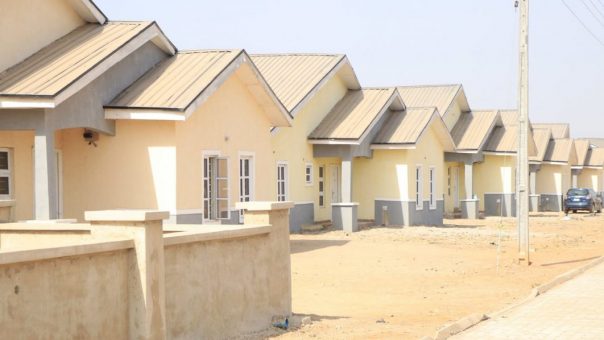The Federal Government has introduced a new national initiative aimed at addressing the shortage of skilled artisans in Nigeria’s housing and construction sector. Known as the National Artisan Skills Acquisition Programme (NASAP), the project was formally launched at the 6th National Council on Skills (NCS) meeting held at the Presidential Villa in Abuja. The event was attended by Vice President Kashim Shettima and other senior government officials.
The Minister of Housing and Urban Development, Ahmed Dangiwa, who unveiled the programme, described it as a core part of President Bola Tinubu’s Renewed Hope Agenda. According to him, NASAP goes beyond being just a training exercise; it is a long-term national strategy to professionalise artisanal work, restore construction quality, and create direct links between skills and employment.
Dangiwa stressed that poor workmanship has become a major setback in both public and private housing projects, compromising quality and safety. He stated that NASAP is the government’s direct response to this persistent issue. A central feature of the programme is a digital platform called Craft-Hub, which the minister described as “an Uber for artisans.” This platform will serve as a digital marketplace, enabling contractors, developers, and homeowners to easily find and hire verified artisans.

After undergoing intensive training and certification, participants will be profiled and added to a national database. Each artisan’s digital profile will include their location, area of expertise, customer ratings, and job history. The idea, the minister said, is to build trust in skilled labour and provide a transparent way for employers to engage reliable workers.
NASAP will run as a six-month programme that combines classroom instruction, mentorship, hands-on training, and job site exposure. It will focus on ten key construction-related trades such as bricklaying, plumbing, electrical installation, carpentry, painting, welding, tiling, POP screeding, furniture making, and refrigeration repair. The government’s target is to train and certify 10,000 artisans each year. The pilot phase begins this year with 3,000 trainees drawn from select states, and a nationwide rollout is scheduled for 2026. By 2027, the government plans to establish Regional Centres of Excellence.
Training will initially be conducted at existing Building Craft Training Schools in Kuje and Yaba, with new centres planned in Imo and Yobe States. The programme will be implemented using a Public-Private Partnership (PPP) model, with initial funding from the Ministry and additional resources to be mobilised through collaboration with development partners such as the World Bank, the African Development Bank, UNDP, GIZ, JICA, and ESG-focused private investors.
Minister Dangiwa emphasised the importance of collaboration, noting that states, employers, development finance institutions, and training institutions all have critical roles to play. Vice President Kashim Shettima, in his remarks, praised the programme, calling it a “game-changing intervention” that directly addresses the skills shortage undermining infrastructure quality across the country. He added that, if properly implemented, NASAP has the potential to reduce Nigeria’s reliance on foreign artisans, improve construction quality, and create meaningful jobs.
Following the presentation, the National Council on Skills recommended that the Ministry of Housing and Urban Development work closely with the National Board for Technical Education (NBTE) to ensure that the NASAP curriculum aligns fully with existing national certification frameworks.




